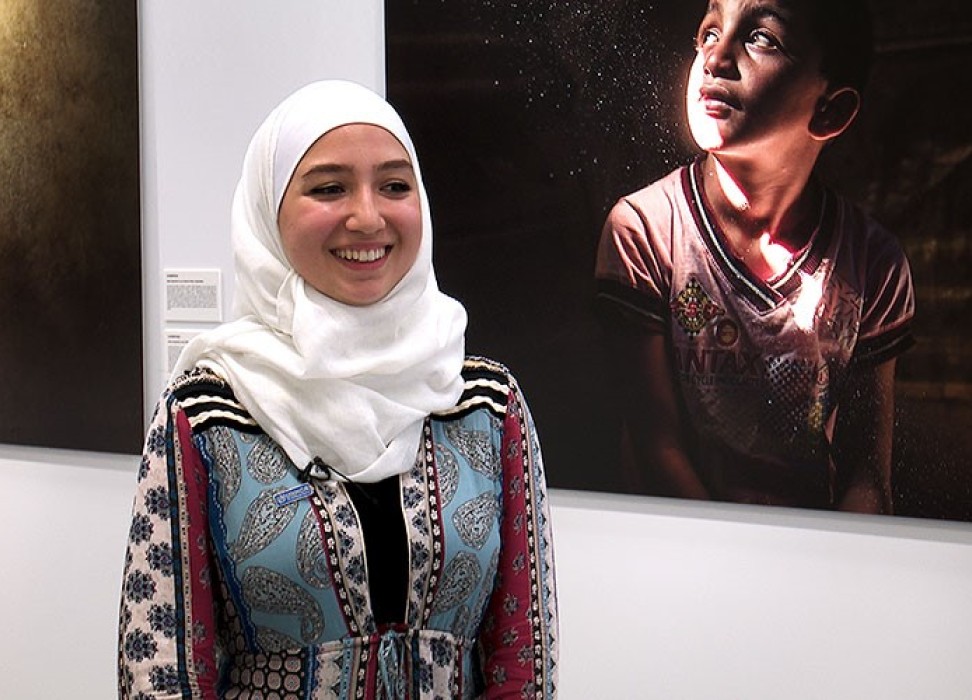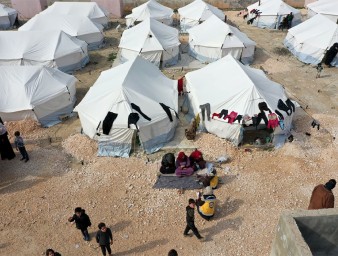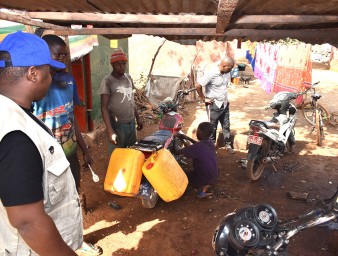Education has the power to transform lives
09 October 2019

“My education, what I have learned, has lifted me when I was down,” said Maya Ghazal, a high profile supporter for UNHCR, the UN Refugee Agency. “It has given me the strength to speak in front of people, to share my struggles in front of young teenagers and most importantly, it helps me to get my message out there.”
For Ghazal, a 20-year-old refugee from Syria living in the United Kingdom, that message is simple: Education is empowering. Ghazal was one of the keynote speakers during the Social Forum. The Forum is a yearly conference where members of the Human Rights Council, grassroots movements, civil society organisations and individuals, have the chance to discuss and learn from each other on a variety of topics. The theme of this year’s Forum was the promotion and protection of the rights of children and youth through education.
For young people caught up in conflict or emergencies, access to education can be a particular challenge. UNICEF reports that up to 27 million children are unable to attend school in conflict zones.
An act of kindness = empowerment
For refugee children, the numbers are equally stark. UNHCR reports that 3.7 million refugee children are out of school. Ghazal was one of these. She was 15 when she fled fighting in Syria and arrived in the United Kingdom. She was lucky, she said: her father was already in the UK and she and the rest of her family were granted family reunion visas.
But accessing education was still a struggle. Ghazal said she was constantly turned away from schools, being told her English wasn’t good enough or her previous schooling in Syria not recognised. She was even told that she could not study her initial choice – political science – because her English skills were not good enough. She felt isolated, alone and, after being turned down by four different schools, rejected. It was as if her refugee status made it harder for her to be taken seriously, she said.
“I got labelled and stereotyped and so people thought my skills and abilities were limited,” she said. “Even though I was 16 at the time, some people could not see past the label I had been given.”
Ghazal said it was a single act of kindness that spurred her in the right direction to access education. She was asked to give a speech during a celebration for the end of Ramadan by the Children’s Society. She had been in the UK for more than four months and her English was still limited. But still she wanted to tell her story. She practiced her speech over and over, memorising it so that she could pronounce the words correctly in English. She gave the speech and at the end of it, a woman in the tiny audience of 10 people came to her and said that her story and delivery were amazing.
“And her just saying that made me believe in myself again,” Ghazal said. “It made me believe in my abilities and made believe that I can improve. It’s such a simple word - just to approach and tell someone. . . but that’s exactly what I needed to hear at that point.”
A student, a pilot and an inspiration
Ghazal did improve. Within a year her English was good enough to take tests that helped her gain a place in a university of her choice. And rather than study political science, she decided to pursue a new interest, borne out of a fascination of watching planes take off and land from the window of the hotel room where she and her family temporarily stayed near Heathrow Airport—flying airplanes.
For the last three years, Ghazal has studied aviation engineering to achieve her dream to be the first Syrian female refugee pilot. She is well on her way – she is currently getting her licence to fly solo.
Ghazal also continues to give speeches about her experience as a young refugee, in various locations and platforms. She wants people to change their minds about what it means to be a refugee, to be female, or even to be Syrian. She wants to show how people like her are not a drain on society, but an asset to it. She also hopes that young people – refugees or not – would be inspired by her story and embrace education as a tool for empowerment.
“I wanted to show others that you can start from zero and you can succeed, that whatever you do, whatever you want to do, you can do it so long as you believe in yourself and your abilities.”
Next year’s Social Forum - to be held 6 and 7 October 2020 – will focus on combating poverty and inequalities.
4 October 2019



